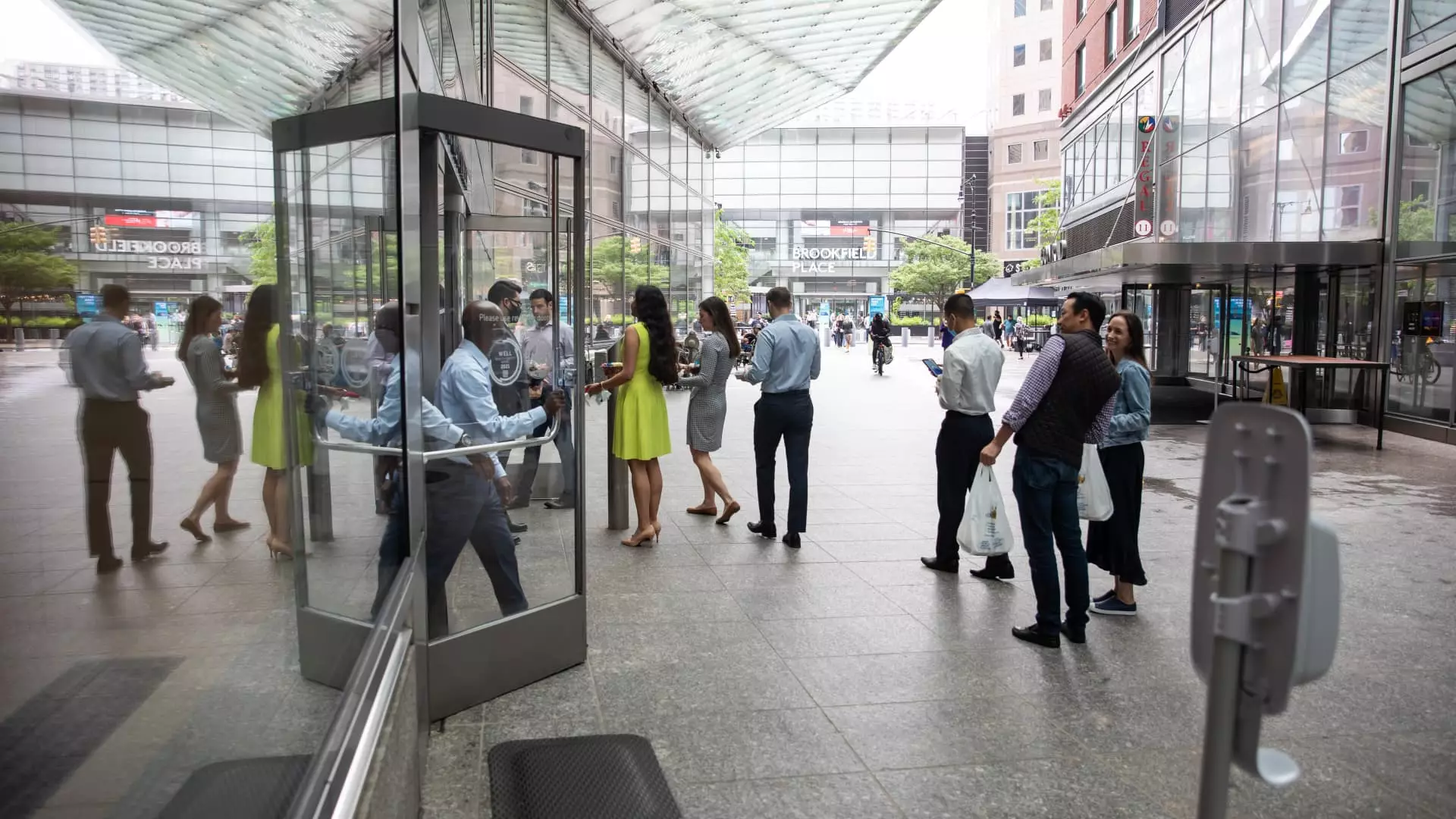In a worrying turn of events, a stunning 62% of America’s top executives predict that the nation’s economy will plunge into a recession within the next six months. This figure, derived from a recent survey by Chief Executive over a pool of more than 300 CEOs, not only marks a significant increase from 48% in March but also underscores an alarming trend that has gripped corporate America. As executives grapple with the impacts of fluctuating economic conditions, the pervasive sentiment reflects anxiety and a looming cloud of uncertainty that hangs over their businesses.
It is disconcerting to witness such a high proportion of business leaders feeling pessimistic about economic growth. The fear of impending downturn seems to have reached a fever pitch particularly influenced by turbulence in the global market, largely stoked by the erratic tariff policies of the Trump administration. This situation not only destabilizes financial markets but is also exacerbating consumer fears, putting additional pressure on an already stressed economy. Executives are bracing themselves for the consequence of these policies, with approximately three-fourths of respondents indicating that future tariffs would adversely impact their businesses as early as 2025.
Tariff Turbulence: A Recipe for Disaster
As companies navigate the uncertain terrain of governmental policies, resistance is palpable among CEOs. Around two-thirds of those surveyed expressed disapproval of the proposed levies, which have been met with considerable backlash and skepticism. The potential for consumer panic to merge with a deeper economic malaise is enough to send shivers down the spine of corporate leaders, especially when considering that the economic stability of 2025 appears increasingly precarious, due to ongoing negotiations about import taxation.
The survey’s index of current business conditions fell dramatically by 9% in April, continuing a downward trajectory that began with a 20% plunge in March. This suggests a consistent and extended decline in confidence that has not been observed since the early days of the COVID-19 pandemic—a stark reminder of how rapidly market sentiment can shift. These alarming figures indicate that CEOs are not only responding to current conditions but are beginning to forecast a long-term decline in consumer engagement and profitability.
A Bleak Outlook for Profits
Perhaps most concerning is the steep drop in expectations for profit among CEOs. When only 37% of executives believe that their companies will see an increase in profitability compared to a robust 76% just a few months prior, it is a serious red flag. The anticipated increases in operational costs, viewed by more than four out of five CEOs as unavoidable this year due to the ongoing tariff negotiations, compound this issue. Such cost projections suggest a bleak profitability landscape, especially when half of the surveyed CEOs expect expenses to spike into double digits.
Mired in these grim conditions, there are slight glimmers of optimism. The survey revealed that just over half of CEOs foresee potential improvement in business conditions over the next year—a notable increase from 39% previously. However, such optimism feels precarious at best when weighed against the broader concerns for the economy. While recent exemptions on tariffs for electronics announced by Trump might momentarily ease pressure, they come with uncertainty surrounding their longevity, leaving CEOs questioning the long-term viability of their financial forecasts.
Corporate Leaders Sounding the Alarm
High-profile executives, such as JPMorgan Chase’s Jamie Dimon and BlackRock’s Larry Fink, have openly articulated their concerns regarding the U.S. economy. Dimon’s warnings about falling earnings estimates for S&P 500 firms due to the unpredictable nature of tariff implementations illuminate the anxiety felt by those at the helm of major companies. Similarly, Fink’s warnings that the economy may have already weakened to a point where growth is expected to dip into negative terrain serve to reinforce the growing fears pervasive in the executive landscape.
The correlation between government policy and corporate sentiment cannot be overstated. The current administration’s actions—instable tariff strategies and the resultant volatility—have left business leaders in a precarious position, gripping the steering wheel of their corporations while peering into an uncertain economic future. The ensuing chaos is not just economic statistics; it represents a critical juncture where the decisions made today will resonate through American businesses for years to come.
As the winds of economic change blow ominously across the corporate landscape, it begs the question: how will America’s leaders respond to not only stabilize their companies but also act as responsible stewards of the wider economic health? The answers to these questions are yet to unfold, but the tones of concern ringing through the CEO ranks are clear: the time for action is swiftly approaching.

